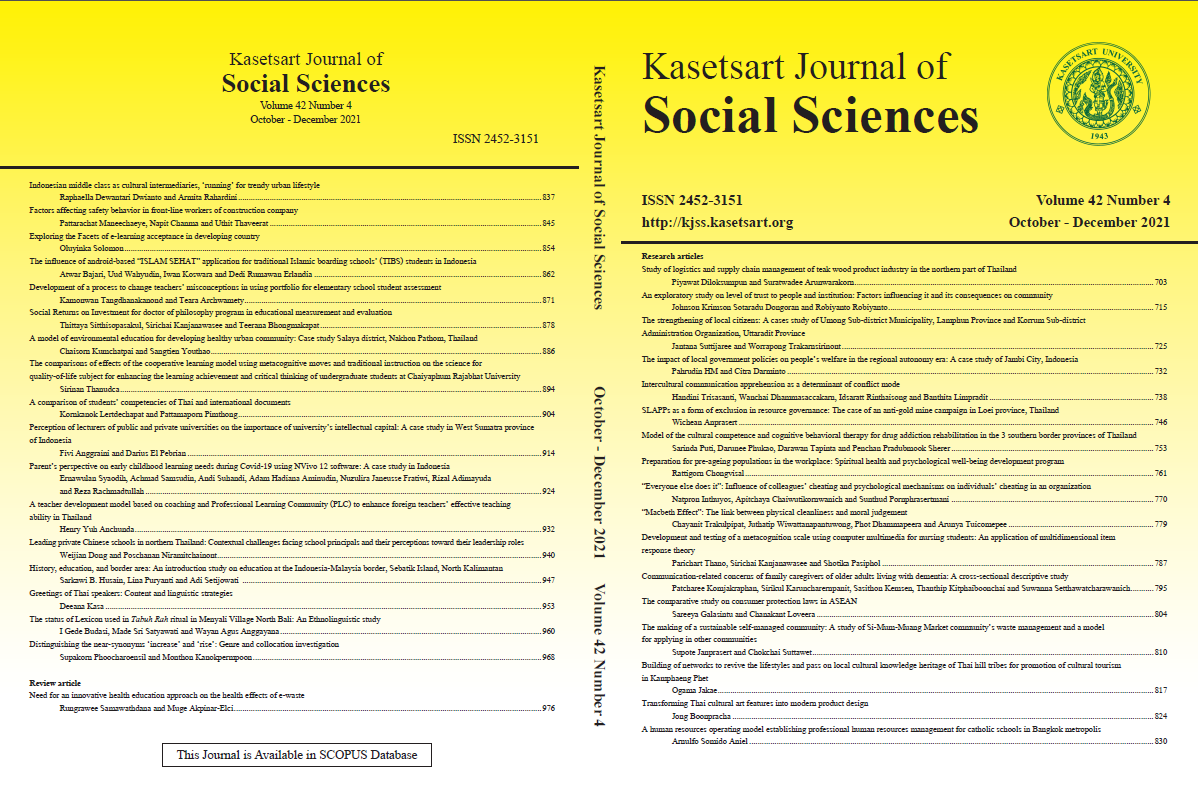“Everyone else does it”: Influence of colleagues’ cheating and psychological mechanisms on individuals’ cheating in an organization
Keywords:
Buddhism, cheating, fear of ostracism, “Hiri-Ottappa” or moral shame and moral dread, moral disengagementAbstract
Do people who see other people cheat end up cheating? This research not only answered this question, but also examined the mechanisms regarding how this occurs through the concepts of psychology and Buddhism. The participants were 1,043 employees from across Thailand of a large organization obtained by using the multistage random sampling method. Self-report questionnaires without identity were used. Results of the structural equation model analysis demonstrated that individuals’ cheating in the organization is significantly influenced by colleagues’ cheating, both directly and indirectly, and in which the indirect influence is passed on through fear of ostracism the most, followed by moral disengagement, whereas “Hiri-Ottappa”, or moral shame and moral dread—a Buddhist concept—could significantly inhibit individuals’ propensity to cheat after seeing colleagues cheat.
Downloads
Published
How to Cite
Issue
Section
License

This work is licensed under a Creative Commons Attribution-NonCommercial-NoDerivatives 4.0 International License.
This is an open access article under the CC BY-NC-ND license http://creativecommons.org/licenses/by-nc-nd/4.0/










